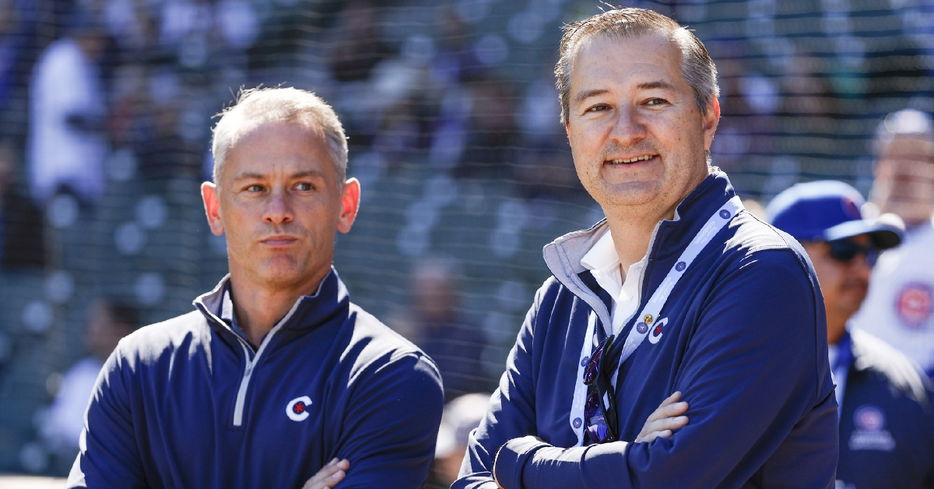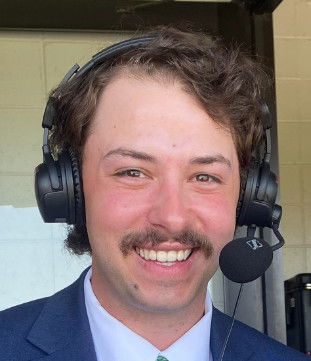
Commentary: Cubs didn't have much to sell |
The Cubs and the trade deadline have been hot topics over the last month. However, unlike recent years, the Cubs were not positioned well to be sellers at the trade deadline, despite what their last-place record would indicate.
Think of 2021 — sorry to bring this up — when the Cubs parted ways via trade with Anthony Rizzo, Kris Bryant, Javier Baez, Trevor Williams, Joc Pederson, Jake Marisnick, Ryan Tepera, Andrew Chafin, and Craig Kimbrel, it was a season in which the Cubs were set up perfectly to be sellers. The Cubs had a slew of players who were bound to be free agents, and they were able to maximize their return instead of letting those players walk for nothing. Then, In 2022, the Cubs had a plethora of players who had impeding free agencies like Michal Gyvens, Chris Martin, and David Robertson, who were traded, and players like Ian Happ and Willson Contreras, who were lured in trade rumors but ultimately held on to by the Cubs. On the flip side, in 2024, the Cubs had hardly any valuable players who were due to be free agents—instead, their roster was made up of players under contract control or pre-arbitration. When the trade deadline approached at the end of July, rumors swirled surrounding many players on the Cubs roster. Jameson Taillon, Nico Hoerner, Justin Steele, Mike Tauchman, Patrick Wisdom, Ian Happ, Seiya Suzuki, Cody Bellinger, Hector Neris, Drew Smyly, Kyle Hendricks and Mark Leiter Jr. Of that list, only Mark Leiter Jr. was moved — in a deal with the New York Yankees. Taillon was possibly the name most people thought WOULD go — as he is 8-6 on the season with a 3.50 ERA, a significant improvement from 2023. However, Jed Hoyer said we will make moves with 2025 and beyond in mind. Taillon is under club control via contract through the 2026 season — so why would the Cubs be in any hurry to move a player they can have for 2.5 more seasons? Steele is a similar story. Justin Steele finished in the top 5 in last season’s Cy Young voting and is proving to be an ace in the sport. Not only would the Cubs have to be swept off their feet to trade him (like the Tigers with Tarik Skubal or the White Sox with Garrett Crochet), but Steele will not be a free agent until after the 2027 season. If the Cubs have any plans to compete in the next few years, Justin Steele needs to be a big part of that, as he has over three seasons before he is a free agent. Similar to the first two cases, Nico Hoerner. According to WAR, Hoerner is the most valuable player from the 2018 draft and is still just 27 years old. As a gold glover and a contact bat, Hoerner has extreme value not only this season but through the 2026 season as well. The Cubs may be more inclined to move Hoerner since the Cubs have Matt Shaw and James Triantos waiting in the wings — but why jump at an opportunity to trade a player who admittedly is not having his best season when he can be of value to you for two more seasons at least. Ian Happ and Seiya Suzuki are both set to be free agents after the 2026 season. While both are enjoying solid seasons in the Cubs’ lineup, they generated some trade interest. Not only do the Cubs have 2+ more years of control on their corner outfielders — but both contracts also have no-trade clauses, which makes moving them more complicated. With Pete Crow-Armstrong here in the big leagues, Cody Bellinger, Ian Happ, and Seiya Suzuki on the roster, and players like Alexander Canario, Kevin Alcantara, and Owen Caissie knocking on the door — the Cubs will have to act eventually to lock in their outfield room, but the time was not at this year’s trade deadline. Cody Bellinger is a curious case. At one point, he was probably as expected to be moved as Taillon was. But Bellinger has an interesting contract. He signed with the Cubs for three years and 80 million dollars — but with opt-outs after each of the first two seasons. So, when it comes to trading Bellinger, his value is difficult to determine. He could be a rental player as he can opt out after the season, but he could also opt in, and the team that trades for him would be responsible for paying him $30 million in 2025. The unknown of what Bellinger could do at the end of the season makes it hard for any team to pull the trigger on trading for him — and just as difficult for the Cubs to gauge proper value in return for their superstar. Role players Mike Tauchman and Patrick Wisdom were also held on to through the trade deadline. While it’s unknown where the Cubs see them fitting into their plans, it’s also unknown how interested the rest of the league was in trading for either player. Keeping those guys is a no-harm, no-foul type of situation. That leaves the arms like Hector Neris, Drew Smyly, and Kyle Hendricks. Neris has a team option for 2025, Smyly has a mutual option, and Hendricks is due to be a free agent. While all three could’ve added some value to the bullpen of a contending team, the Cubs probably wouldn’t have gotten too much for any of this trio — which makes sense why the team held on to them. The big token move was Christopher Morel being traded — but that move was more of a Buy than a Sell as the Cubs acquired all-star Isaac Paredes in the deal. As for the rest of the Cubs’ actions at this year’s deadline, the Cubs were not set up to sell; they’re built to win. Despite the players' value, the Cubs didn’t have much to sell.





